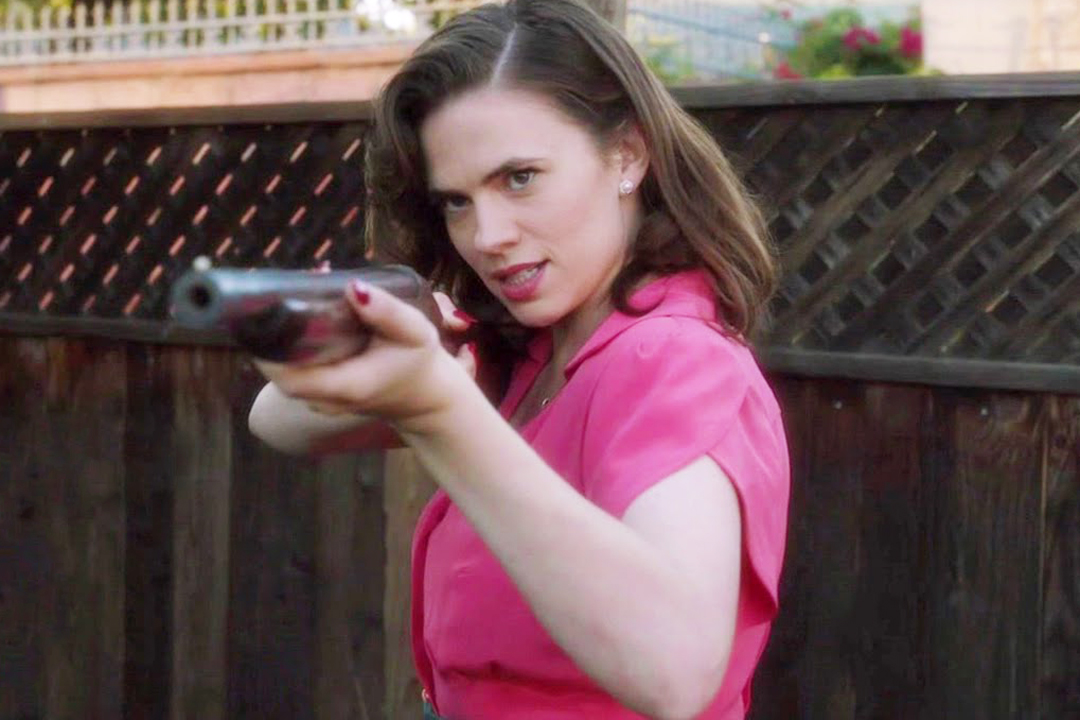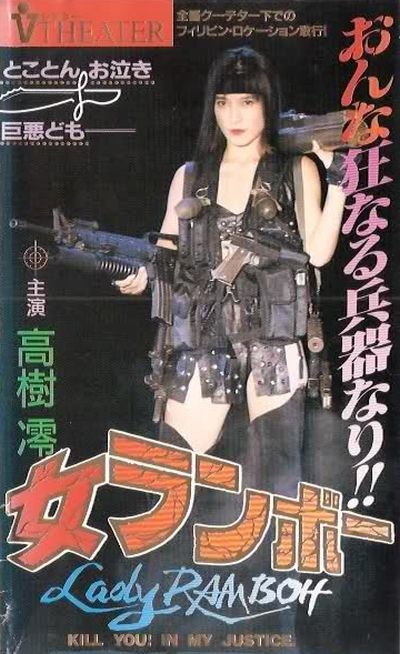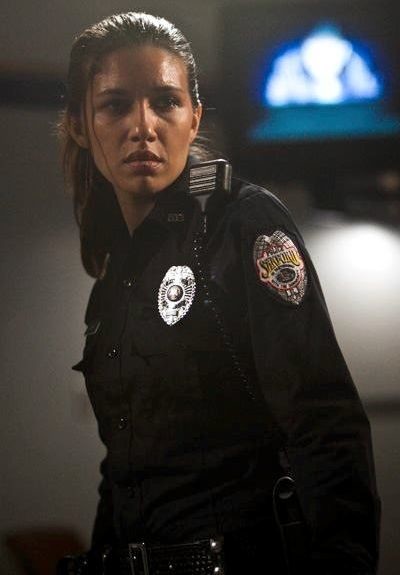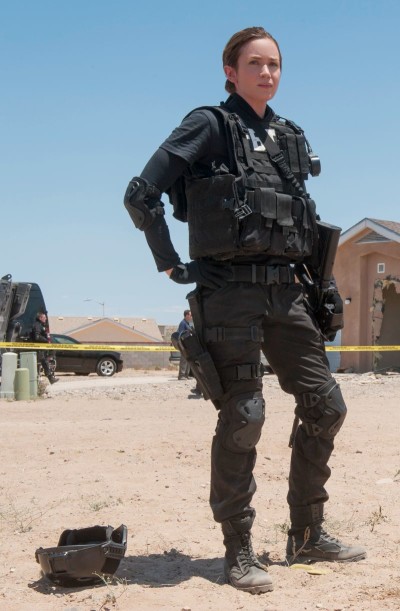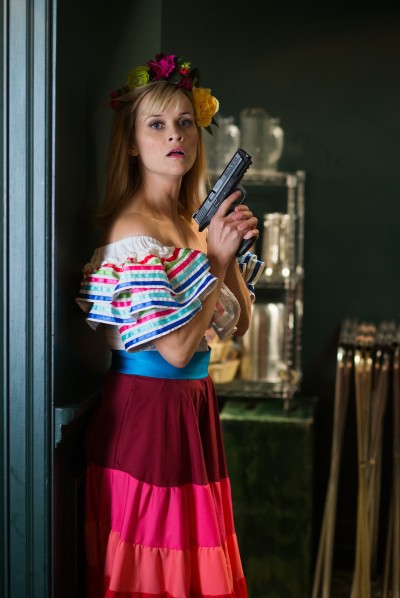★★★
“Deeds, not words.”
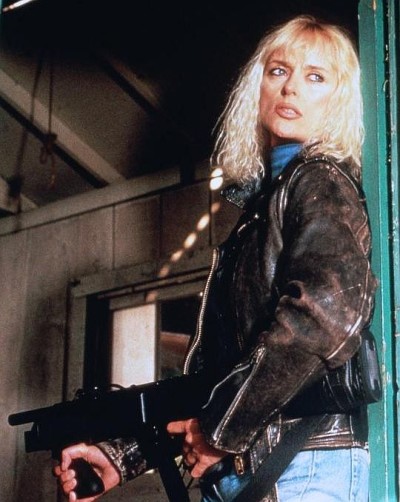 I’ve been doing this site for 13 years, and it’s amazing that this is the first “real” Sybil Danning movie I’ve covered (save her appearances in Malibu Express and Grindhouse), For she was one of the first action heroines I ever noticed, back in the golden era of VHS which was the eighties, when I was at college. Battle Beyond the Stars, Phantom Empire, Reform School Girls…. While I’d be hard pushed to call many of them cinematic classics – or even good, by normal standards – Danning, whose picture can be found in the dictionary beside the word “statuesque”, made an impact in them all. She seemed to be on the verge of a breakthrough, when an accident during rehearsal effectively ended her action career, leaving her with severely herniated discs in her back, and LA Bounty as her swansong.
I’ve been doing this site for 13 years, and it’s amazing that this is the first “real” Sybil Danning movie I’ve covered (save her appearances in Malibu Express and Grindhouse), For she was one of the first action heroines I ever noticed, back in the golden era of VHS which was the eighties, when I was at college. Battle Beyond the Stars, Phantom Empire, Reform School Girls…. While I’d be hard pushed to call many of them cinematic classics – or even good, by normal standards – Danning, whose picture can be found in the dictionary beside the word “statuesque”, made an impact in them all. She seemed to be on the verge of a breakthrough, when an accident during rehearsal effectively ended her action career, leaving her with severely herniated discs in her back, and LA Bounty as her swansong.
She plays bounty hunter of few words, Ruger, an ex-cop who has been holding a grudge against those who killed her partner and got away with it. In particular,. that’s Cavanaugh (Hauser), an import-export businessman who has a number of other, shadier sidelines. His latest involves kidnapping a candidate for mayor of LA, only for Ruger to interrupt the process. As a result, the victim’s wife could identify the perps, so must be disposed of, only for Ruger to come to the rescue once again, intent on being the heavily-armed fly in the ointment, as she works her way up the chain of lowlife scum, towards Cavanaugh.
It is a bog-standard actioner from the period, with eighties hair, eighties fashion, an eighties soundtrack, and lots of bloodless gunplay. But two things salvage it from absolutely forgettability. And, no, that isn’t a set-up for a reference to Sybil’s breasts [impressive though they are; as a teenager, I must have worn out my copy of The Howling II…], for I mean Danning and Hauser, who are nicely constructed as polar opposites. Ruger is a women of very few words; the IMDb says it’s a a total of 31 during the entire film, but that doesn’t diminish much from the badassery of her character. At the other extreme, Cavanaugh runs his mouth at hypersonic velocity, and you get the sense he is capable of going from playful puppiness to psychotic rage in the blink of an eye. The contrast is well-conceived and nicely-executed, building to an extended finale around the villain’s warehouse where Ruger has to fend off everything from clockwork explosive birds to a giant, stuffed polar-bear.
As mentioned, while you’d be hard pushed to argue this was unjustly overlooked at the Oscars or whatever, it’s workmanlike enough. If the material has seen better days and the budget seems to be missing a zero, it’s improved enough by the two leads to leave you wondering where Danning’s career might have gone, if fate hadn’t dealt her such a crappy hand.
Dir: Worth Keeter
Star: Sybil Danning, Wings Hauser, Blackie Dammett, Henry Darrow






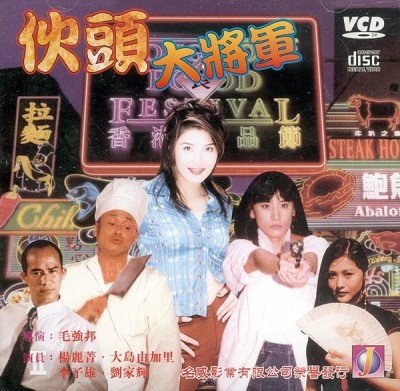
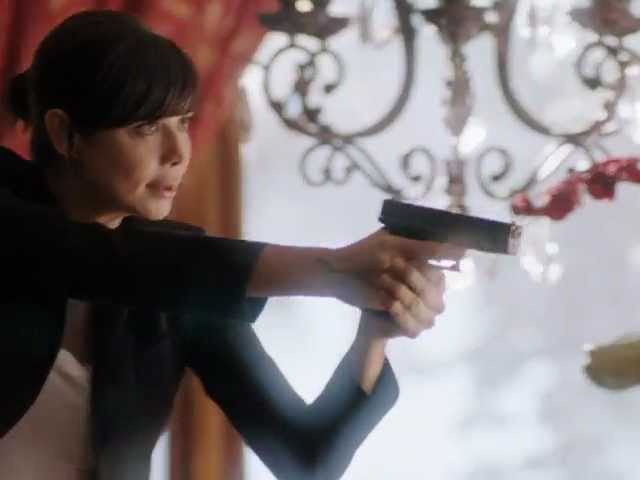
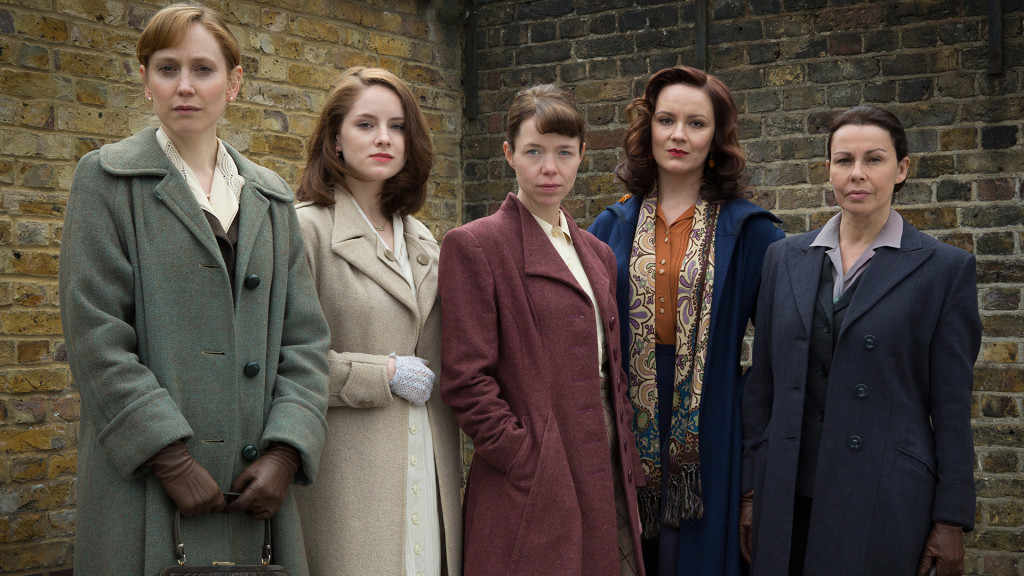
 Set in the early 1950’s, this was a brief – seven episodes over two seasons – but very effective TV series, with heroines who used brains, rather than brawn, to solve crimes which the authorities are either unable or unwilling to address. The origins of the group were during World War II, when their analytical skills were put to vital use, cracking German communications, out of the then-secret Bletchley Park base. But after the war, the women returned to normal lives; Susan Gray (Martin) is now married, a mother of two, and uses her talents for nothing more taxing than crosswords. But she is intrigued by a series of serial murders, and detects an apparent pattern in them. When her attempts to through official channels are met with little more than a pat on the head and a suggestion to return to the kitchen, she contacts her colleagues from Bletchley, who begin gathering and analyzing information on their own. This makes use of the skills each has: for instance, Jean (Graham) works as a librarian, while Lucy (Rundle) has a photographic memory, and asks as the group’s computer database.
Set in the early 1950’s, this was a brief – seven episodes over two seasons – but very effective TV series, with heroines who used brains, rather than brawn, to solve crimes which the authorities are either unable or unwilling to address. The origins of the group were during World War II, when their analytical skills were put to vital use, cracking German communications, out of the then-secret Bletchley Park base. But after the war, the women returned to normal lives; Susan Gray (Martin) is now married, a mother of two, and uses her talents for nothing more taxing than crosswords. But she is intrigued by a series of serial murders, and detects an apparent pattern in them. When her attempts to through official channels are met with little more than a pat on the head and a suggestion to return to the kitchen, she contacts her colleagues from Bletchley, who begin gathering and analyzing information on their own. This makes use of the skills each has: for instance, Jean (Graham) works as a librarian, while Lucy (Rundle) has a photographic memory, and asks as the group’s computer database.